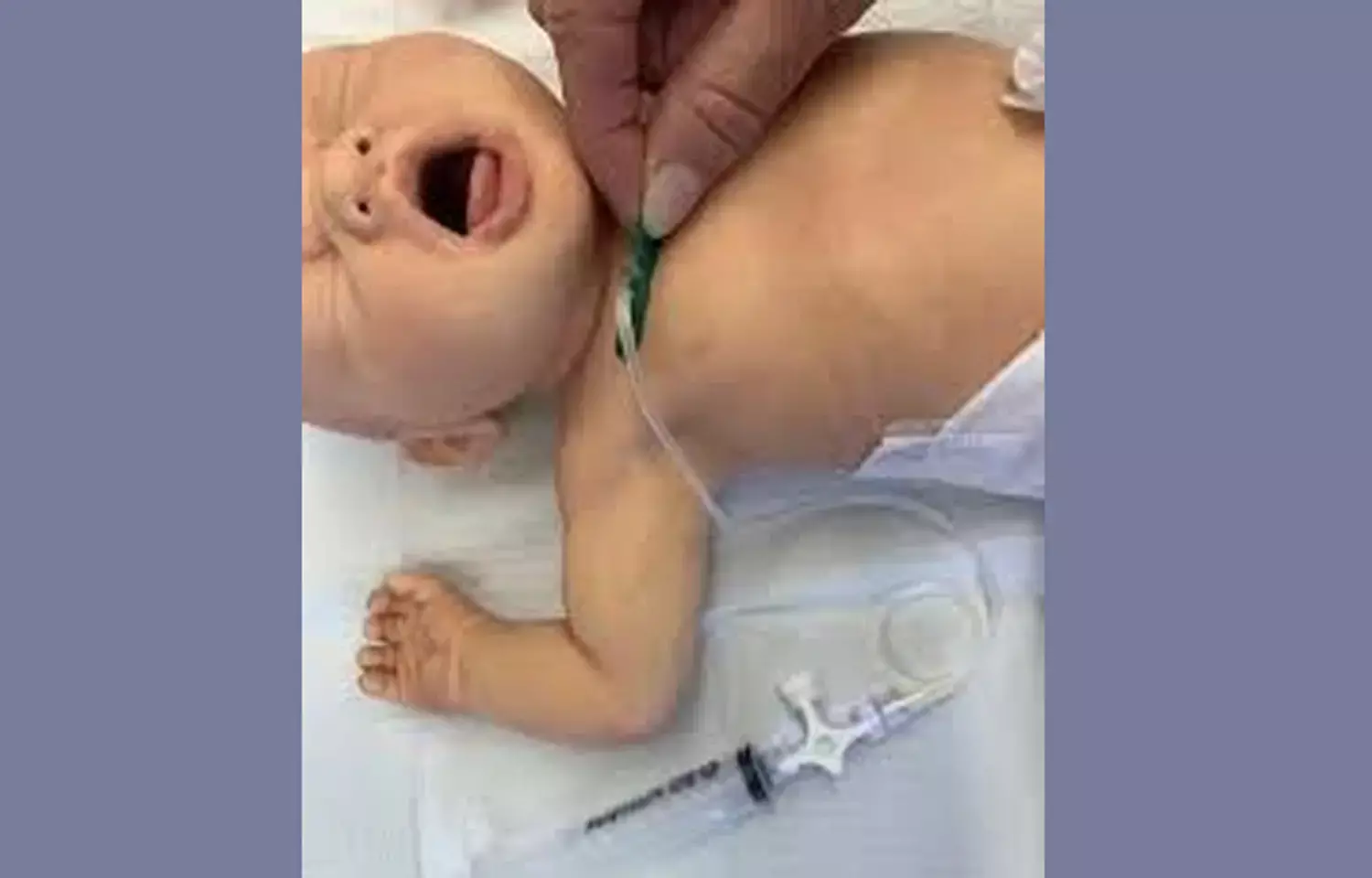- Home
- Medical news & Guidelines
- Anesthesiology
- Cardiology and CTVS
- Critical Care
- Dentistry
- Dermatology
- Diabetes and Endocrinology
- ENT
- Gastroenterology
- Medicine
- Nephrology
- Neurology
- Obstretics-Gynaecology
- Oncology
- Ophthalmology
- Orthopaedics
- Pediatrics-Neonatology
- Psychiatry
- Pulmonology
- Radiology
- Surgery
- Urology
- Laboratory Medicine
- Diet
- Nursing
- Paramedical
- Physiotherapy
- Health news
- Fact Check
- Bone Health Fact Check
- Brain Health Fact Check
- Cancer Related Fact Check
- Child Care Fact Check
- Dental and oral health fact check
- Diabetes and metabolic health fact check
- Diet and Nutrition Fact Check
- Eye and ENT Care Fact Check
- Fitness fact check
- Gut health fact check
- Heart health fact check
- Kidney health fact check
- Medical education fact check
- Men's health fact check
- Respiratory fact check
- Skin and hair care fact check
- Vaccine and Immunization fact check
- Women's health fact check
- AYUSH
- State News
- Andaman and Nicobar Islands
- Andhra Pradesh
- Arunachal Pradesh
- Assam
- Bihar
- Chandigarh
- Chattisgarh
- Dadra and Nagar Haveli
- Daman and Diu
- Delhi
- Goa
- Gujarat
- Haryana
- Himachal Pradesh
- Jammu & Kashmir
- Jharkhand
- Karnataka
- Kerala
- Ladakh
- Lakshadweep
- Madhya Pradesh
- Maharashtra
- Manipur
- Meghalaya
- Mizoram
- Nagaland
- Odisha
- Puducherry
- Punjab
- Rajasthan
- Sikkim
- Tamil Nadu
- Telangana
- Tripura
- Uttar Pradesh
- Uttrakhand
- West Bengal
- Medical Education
- Industry
Early Skin-to-Skin Care with a Polyethylene Bag reduces neonatal hypothermia, Study says

According to recent research, it has been noted that low-cost polyethylene bags started after birth in combination with skin-to-skin care reduced moderate or severe hypothermia at 1 hour and at discharge among newborns, as published in the Journal of Pediatrics.
Colm P. Travers and colleagues from the Department of Pediatrics, University of Alabama at Birmingham, Birmingham, AL conducted the study to determine whether early polyethylene bag use with skin-to-skin care compared with skin-to skin care alone reduce hypothermia among infants born at term in resource-limited settings.
Infants born at term in the tertiary referral center were randomized using sequentially numbered sealed opaque envelopes in 2 phases: after birth (phase 1) and at 1 hour after birth (phase 2) to either skin-to-skin care with polyethylene bags or skin-to-skin care alone.
A total of 423 infants were enrolled in the study. Infant and maternal temperatures were recorded at birth, 1 hour, and every 4 hours until discharge or 24 hours.
The results showed that –
- The rate of moderate-severe hypothermia (temperature <36.0°C) at 1 hour was 72 of 208 (34.6%) in the skin-to-skin care with a polyethylene bag group compared with 101 of 213 (47.4%) in the skin-to-skin care alone group (relative risk, 0.71; 95% CI 0.56-0.90; P < .01; number needed to treat = 8).
- phase 1 treatment assignment significantly modified the effect of phase 2 treatment (P = .02 for interaction effect).
- Among infants randomized to skin-to-skin care with a polyethylene bag in phase 1, the risk of moderate-severe hypothermia was decreased in infants randomized to continue this intervention until discharge compared with infants randomized to skin-to-skin care alone.
- The rates of severe hypothermia, hyperthermia, and other adverse events did not differ significantly between groups.
Hence, it was concluded that "low-cost polyethylene bags started after birth in combination with skin-to-skin care reduced moderate or severe hypothermia at 1 hour and at discharge among infants born at term in a resource-limited setting compared with skin-to-skin care alone."
Dr. Nandita Mohan is a practicing pediatric dentist with more than 5 years of clinical work experience. Along with this, she is equally interested in keeping herself up to date about the latest developments in the field of medicine and dentistry which is the driving force for her to be in association with Medical Dialogues. She also has her name attached with many publications; both national and international. She has pursued her BDS from Rajiv Gandhi University of Health Sciences, Bangalore and later went to enter her dream specialty (MDS) in the Department of Pedodontics and Preventive Dentistry from Pt. B.D. Sharma University of Health Sciences. Through all the years of experience, her core interest in learning something new has never stopped. She can be contacted at editorial@medicaldialogues.in. Contact no. 011-43720751
Dr Kamal Kant Kohli-MBBS, DTCD- a chest specialist with more than 30 years of practice and a flair for writing clinical articles, Dr Kamal Kant Kohli joined Medical Dialogues as a Chief Editor of Medical News. Besides writing articles, as an editor, he proofreads and verifies all the medical content published on Medical Dialogues including those coming from journals, studies,medical conferences,guidelines etc. Email: drkohli@medicaldialogues.in. Contact no. 011-43720751


